Enlightenment
If enlightenment is having the mind of a child, as some say, then this surely is The Way.

Fools swear they wise, wise men know they foolish
If enlightenment is having the mind of a child, as some say, then this surely is The Way.
With Latouche in the running for the movie job at Disney, it falls to me to suggest you have a look at this totally awesome model of an Arado AR-196 A-3, the plane of Tintin's expedition in The Shooting Star, and of the German Navy. An earlier, Latouchian take on this flying existential oddity is here.
I purchased it as light reading but found that the essays in Neyer's book are analytical, well-judged, and even stylish, such as the one that begins "Red Sox seasons die the deaths of spaghetti western cowboys: never graceful, but rather writhing, painful, and melodramatic."
As I prepare to depart this little country, I would just like to say something about the coffee. It's fine. No, no, really, it is fine.



Labels: Seahawks fans cannot be cured
 Tomorrow, Jake Locker leads the ranked-for-the-first-time-this-century Washington Huskies against the legacy-admission-Hoover-Institution-harbouring Stanford Cardinal. It's payback time!
Tomorrow, Jake Locker leads the ranked-for-the-first-time-this-century Washington Huskies against the legacy-admission-Hoover-Institution-harbouring Stanford Cardinal. It's payback time!Labels: Man-crush
...when this is going on Seattle?
I am in the Netherlands for a conference for the next couple of days. A few notes:
I'm not sure how discreet I should be so I'll just say that the guy I know in the military recently finished sniper school. Forty out of forty at 800 yards. Best distance: 2,200 yards. Wow.
Mateys, I done heerd the scuttlebutt that Talk Like a Pirate Day Not be worthy of a-recognizing!! I'll be a dutch-herring buss!! Vast that' lubberly beard juice, ye blasphemous barge-limpets! The Devil's small clothes to such un-seamanly sentiments!
In his first NFL regular season game, Aaron Curry fined for unnecessary roughness.

Labels: Man-crush, Seahawks fans cannot be cured
Oh, we're off to a great start. This guy was going to be my horse, and now appears to have forgotten how to play football:
Oh, and now his coach has decided to not give him touches around the goal line.RB Steve Slaton was limited to 17 yards on nine carries by the Jets. At one point, he had six carries for one yard. Slaton appears to have lost his quickness and instincts, but he also hasn't gotten any blocking from his linemen. He was the only back in the NFL to rush for at least 100 yards against the Titans last season, and he did it twice. Now the coaches would probably be happy if he generated 100 in two games. The one play Slaton did make on a screen pass ended with his losing a fumble at the Jets' 20.
(Yahoo! Sports)
Did you know that as software gets older it gets ratty and stale and simply can't be fixed? Who knew? Microsoft explains this phenomenon here.
While I very much understand the view there has been a massive concentration of power in the Executive Branch since well before the Bush Administration, and share the hope that everything will change, the softly cynical resignation of Wills' column irritated me enough to write a more thorough response.
Nonetheless, some of us entertain a fondness for the quaint old Constitution. It may be too late to return to its ideals, but the effort should be made. As Cyrano said, "One doesn't fight in the hope of winning" (Mais on ne se bat pas dans l'espoir du succès).
As I've read about these journeys around China, I've been struck by how much more difficult the historian's job becomes as we move into the modern age. The travels of a 7th century monk turn out to be meticulously documented, with details easily verified from contemporary texts and the archaeological record. But, as we draw closer to the present day, things become murkier. We find two, or three, or four versions of the most basic stories. By the mid-1930s we might have a million soldiers engaged, and no two reports corroborating one another. Did 40,000 Communists die at the Xiang River, or did they desert? Did Mao evade Chiang on the Long March, or did Chiang let him go because his son was being held hostage in Moscow? Who fought the Japanese? What really happened at Luding Bridge?
Toad sipped his tea.
"Frog," he asked,
"are you making this up?"
"Maybe yes and maybe no,"
said Frog.

Yesterday the monks had harvested the last of the cabbage and potatoes. The yellow beans, the wheat, and the millet were finished. China was starving. More than thirty million would die in the next two years. Only bureaucrats and rats would eat...
When would death arrive at Puu Jih? There were stories, rumors sliding from village to village like the hunger. And then last week, late one night, a young lama from Mei Leh Geng Jau lamasery on the Ulansuhai plateau roused them from their beds with his shouting and pounding on the gate. His face was drawn white, thin as paper. His eyes were wild. He told them that the ninth patriarch, the great Ch'an Master Hsu Yun, Empty Cloud, had, at the age of one hundred twenty, been hacked to death by the Communists.
[They] bowed to their master, amazed that he had descended the mountain at night. But the time for ceremony had passed. He grasped each of them by the shoulders and held them for a moment. To Tsung Tsai he said, "Everywhere are hungry ghosts. Go quickly. Keep a strong mind."
Tsung Tsai said nothing. There was nothing to say, no gesture for endings. Soon, he knew, his teacher would forget the world, forget himself, simply let go, and die. He feared his older brothers too would soon be dead, and he could not contemplate the emptiness of the world without them.
The city was dangerous. Jeering mobs eager to prove their revolutionary
integrity hunted "reactionaries," turning on anyone they thought suspect.
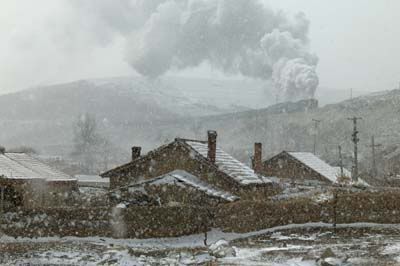
"Frog," asked Toad,
"did this really happen?"
"Maybe it did
and maybe it didn't,"
said Frog.
Truth is the murkiest, the most illusory of all human constructs. Fact number one: truth and lies both, equally, contradict themselves eventually. Nothing is as it seems. The one thing that all storytellers have in common is a wildly subjective approach to the truth... The only difference between fiction and nonfiction is that with fiction one changes the names.
The cemetery was a half mile west of the village, bounded to the south by a dike. The graves were unmarked mounds of sand and stone. I followed Tsung Tsai. He pointed: “Mama, my two brothers are here.” He bent and placed small pieces of pancakes from our breakfast on each grave. He took a handful of incense sticks that Fang-fang had given him as we left the house. I stood with my parka unzipped and held outstretched, trying to shelter him from the wind. He tried again and again to light them, but it was no use: the wind was too strong.
“Just forget,” he said, and stuck a few on each grave. His eyes closed and his lips moved.
Next, he went to the graves of his father and grandfather and repeated the ceremony. When he finished, he bit his thumb and sobbed, finally giving himself over to grief – for his lost family, his lost world.
I looked down at the rough mound that was his father’s grave. I felt nothing. No reincarnated souls. No hungry ghosts. Another poet whose bones refused to turn to dust.
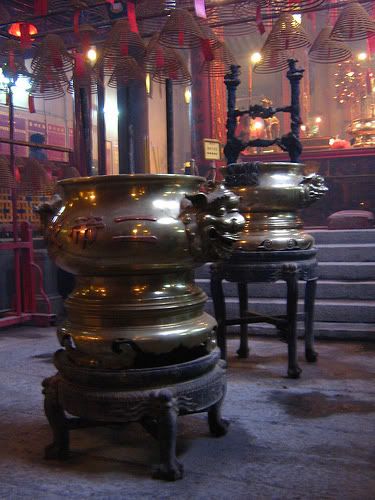
"Frog," asked Toad,
"was that a true story?"
"Maybe it was
and maybe it wasn't,"
said Frog.
Ten years ago, I clearly saw a ghost, and she talked to me. It was my mother. She had died just 24 hours before. Her face was 10 times larger than life, in the form of a moving, pulsing hologram of sparkling lights. My mother was laughing at my surprise. She drew closer, and when she reached me, I felt as if I had been physically punched in the chest. It took my breath away and filled me with something absolute: love, but also joy and peace — and with that, understanding that love and joy and peace are all the same thing. Joy comes from love. Peace comes from love. "Now you know," my mother said.
Frog and Toad sat
close by the fire.
They were scared.
The teacups shook
in their hands.
They were having the shivers.
It was a good, warm feeling.
Not only does Hasselbeck have a fantasy team- but we have the same problems, like whether to start Manning, Farvre or Hasselbeck. There is some variance in which Manning.
There is an old saying among sportswriters - the smaller the ball, the better the story. Rick Reilly demonstrates here. Congratulations Rick, you shameless cheater.
Bill Bryson's Shakespeare: All The World's a Stage is a readable, informative, and sometimes very funny briefing on the Bard, "a man so good at disguising his feelings that we can't even be sure that he had any."
Yes, it's a little opera, but it's apparently based on the, um libretto, from the debate.
E.J. Dionne Jr. writes:
"Upon Barack Obama’s election, even my most conservative friends who supported John McCain said Obama could do a world of good for poor children in the country by stressing the importance of education, hard work, staying in school and taking responsibility. Yes, those are often thought of as conservative values.
"But when Obama proposed to do just that on the first day of school, the far right -- without asking any questions or seeking any information -- decided to pounce, on the theory that everything Obama did should be attacked relentlessly as part of some secret and dangerous ideological agenda."
Please guys, it's not funny anymore. Turn down the crazy, you're scaring the kids.
Admiral Peary, it appears, fraudulently claimed to have reached the Pole. Byrd's flight claim is heavily disputed. Which means it was Amundsen, of course, who reached it in 1926 in the airship Norge with sponsor Ellsworth and pilot Nobile.
A prefatory note to The Laird's upcoming What I Believe.
As the mainstream media has backed away from rebroadcasting the President's indoctr...er...educational message to America's youth, we at Eisengeiste feel obliged to reprint the most inflammatory parts below. The full text, accessible for research purposes only, may be found here.
Online here, How to Be a Good Communist, for your convenience. This was written in 1939 (Laird: the 70th anniversary!), by Liu Shaoqi, a Chinese Communist Party leader and a pretty hot ticket until he got on the wrong side of the Cultural Revolution.
[S]ome comrades of peasant background used to think that communism meant "expropriation of local tyrants and distribution of the land". When they first joined, they had no understanding of the real meaning of communism. Today, quite a number of people join the Party chiefly because it is resolute in resisting Japan and advocates the Anti-Japanese National United Front. Others join our ranks because they admire the communist Party for its good reputation or because they realize in a vague way that it can save China...
Nevertheless, there is no terrible problem here. After all, it is not a bad thing that people turn to the Communist Party, enter it seeking a way out of their predicament and approve of its policy. They are not mistaken in coming to us. We welcome them - everyone except for enemy agents, traitors, careerists and ambitious climbers.

Labels: Seahawks fans cannot be cured
By 1930, Chiang Kai-shek had things pretty well sewn-up. The former warlord had succeeded Sun Yat-Sen as head of the Kuomintang, and following the Northern Expedition had largely reunified China under Nationalist rule. He'd then put down three defecting generals in the Central Plains War.
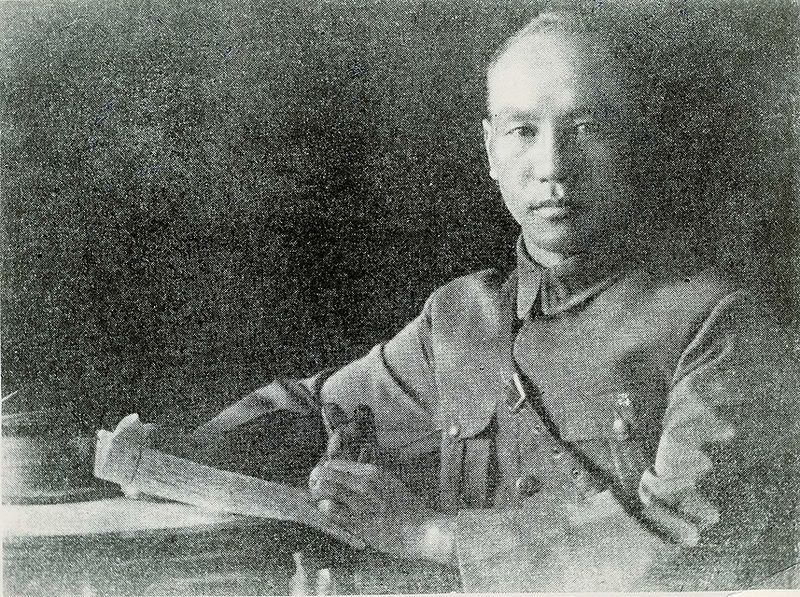
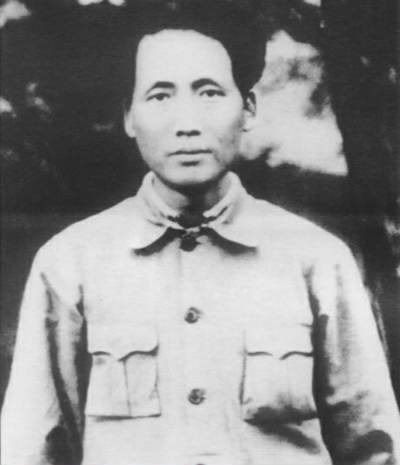
Certainly no historian working on twentieth-century China can deny that there were "moles" at work in many sections of the Nationalist Chinese army and intelligence agencies, moles placed either by the Nationalist Party, the Communists, or pro-Japanese sympathizers, and at times they influenced events in a decisive way. There were also double agents, on all three sides. All three sides had their own assassination squads.No one at the leadership level could afford to care about the body count. Certainly not the warlords, who killed Zhu De's wife and kids. Not Chiang, who had personally overseen the liquidation of thousands of Communists in Shanghai. Not the Japanese, who were warming up for the Rape of Nanking, before using the country as a chemistry experiment. And certainly not the Russians, who were just getting into the good part of the national fitness program we now call Stalinism.
Initially, the First Red Army, with its baggage of top communist officials, records, currency reserves and other trapping of the exiled Chinese Soviet Republic, fought through several lightly defended Kuomintang checkpoints, crossing the Xinfeng river and through the province of Guangdong, south of Hunan and into Guangxi. At the Xiang River, Chiang Kai-shek had reinforced the KMT defenses. In two days of bloody fighting, 30 November to 1 December 1934, the Red Army lost more than 40,000 troops and all of the civilian porters, and there were strongly-defended Nationalist defensive lines ahead. Personnel and material losses after the battle of the Xiang river affected the morale of the troops and desertions began.What was left of the army paused for a leadership conference. "Go north, to fight the Japanese," Mao argued. If it could be done, something might yet be salvaged. If they got through, they could:
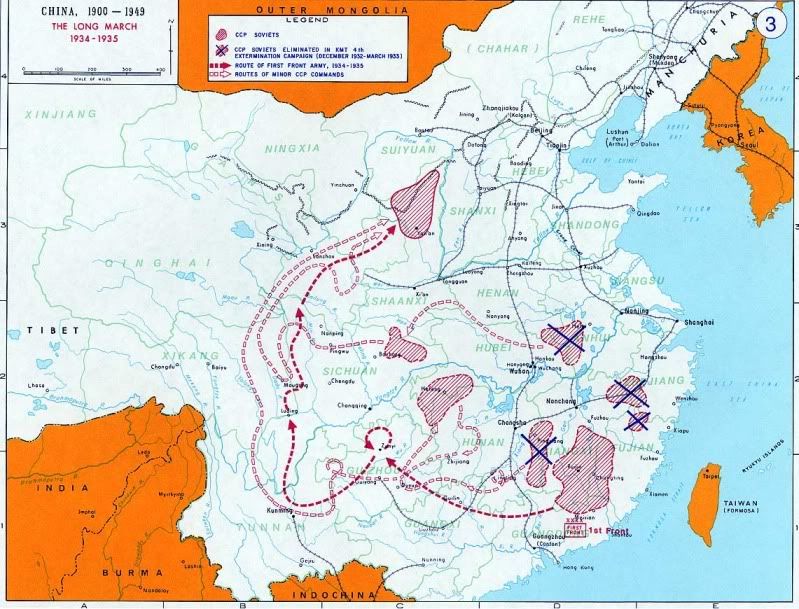
Those on the march covered 6,000 miles in just over a year, crossed twenty-four rivers and eighteen mountain ranges, five of them under permanent snow. They passed through twelve provinces and occupied sixty-two cities. By the end their numbers had been reduced to about 30,000 (some say fewer)... There were fifteen pitched battles and a skirmish of some sort almost daily.In 2003 two researchers retraced the route (their book is here). Their view that the route was shorter-than-advertised prompted a stern reaction from the Chinese government ("the 25,000 li of the Red Army's Long March are a historic fact and not open to doubt"). But lost in that controversy was this simple truth: it took the authors 384 days to cover the route...about the same time it took Mao's Army. And Mao's troops did it with bad equipment, food shortages, and people shooting at them.
The Three Rules of Discipline and Eight Points for Attention (tr. People's Daily):Both Morton and historian Stephen Uhalley argue that the Red Army actually followed these rules, and in so doing was able to draw a sharp contrast with the Nationalists, who behaved more "traditionally". In this brutal era, Mao was able to frame a story of a movement that acted with honor and decency toward common people. The people believed it.The Three Main Rules of Discipline:
- Obey orders in all your actions.
- Do not take a single needle or piece of thread from the masses.
- Turn in everything captured.
The Eight Points for Attention:
- Speak politely.
- Pay fairly for what you buy.
- Return everything you borrow.
- Pay for anything you damage.
- Do not hit or swear at people.
- Do not damage crops.
- Do not take liberties with women.
- Do not ill-treat captives.
The Long March is a manifesto. It has proclaimed to the world that the Red Army is an army of heroes, while the imperialists and their running dogs, Chiang Kai-shek and his like, are impotent. It has proclaimed their utter failure to encircle, pursue, obstruct and intercept us. The Long March is also a propaganda force. It has announced to some 200 million people in eleven provinces that the road of the Red Army is their only road to liberation.
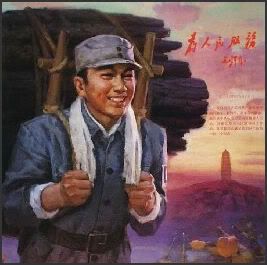
This week saw the commemoration of the 70th anniversary of the beginning of World War II. Five years from now, we will be commemorating the 70th anniversary of the liberation of Belgium from the Nazi's during WWII. BUT: will we also be commemorating the 75th anniversary of the beginning of World War II??? Does this mean 10 solid years of WWII commemorations? (I'm kinda still WWII'd out from the 60th anniversary.)